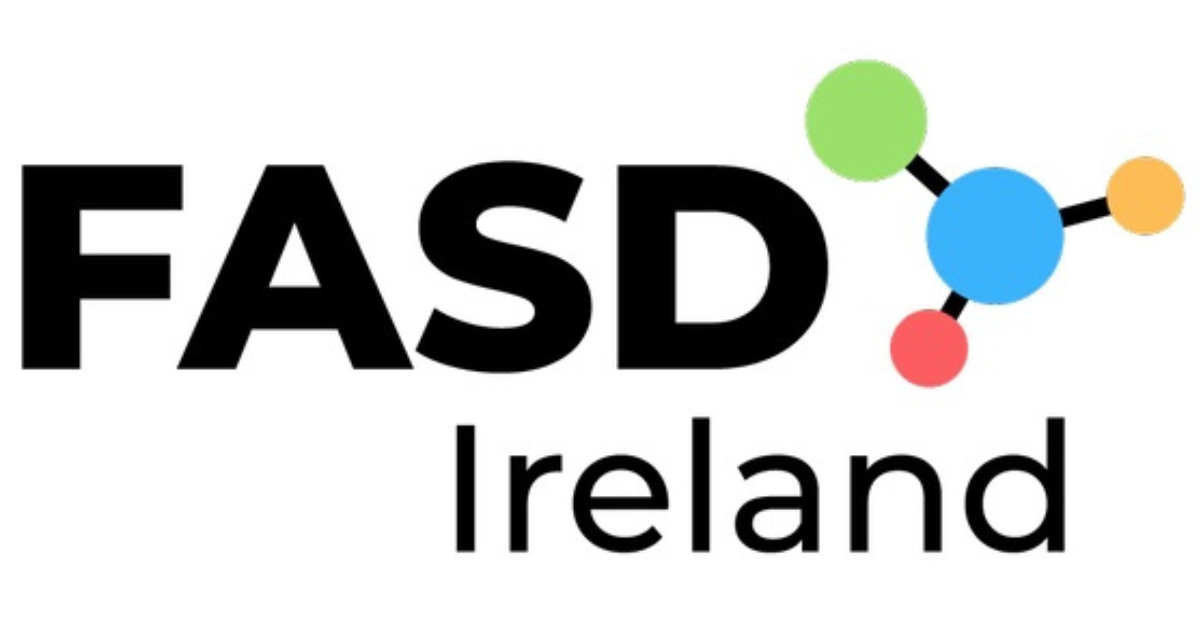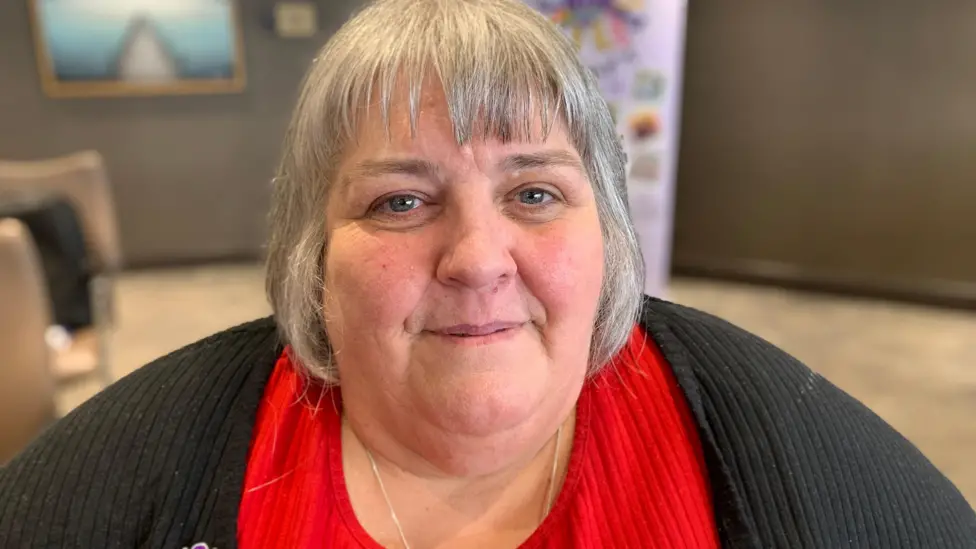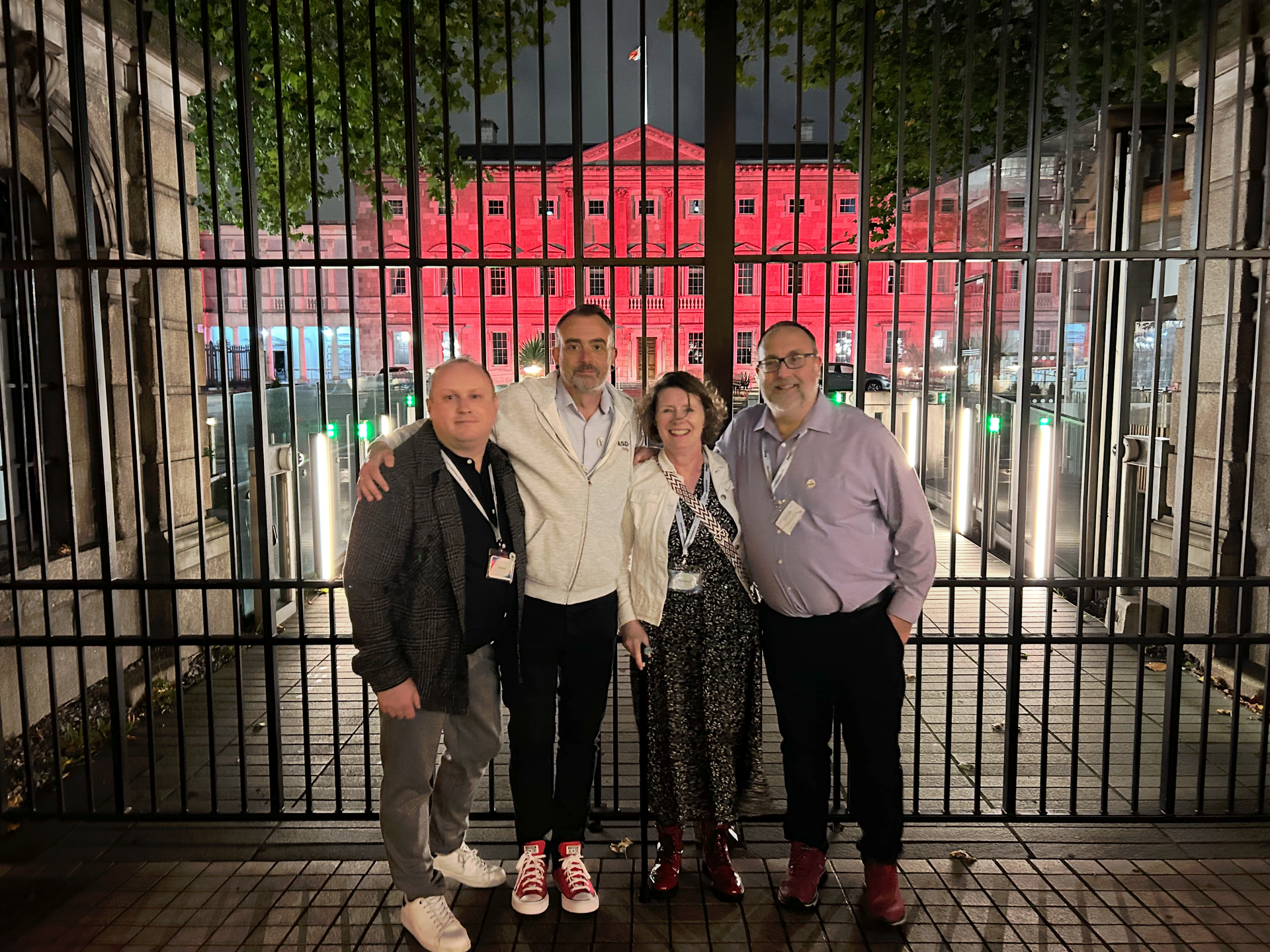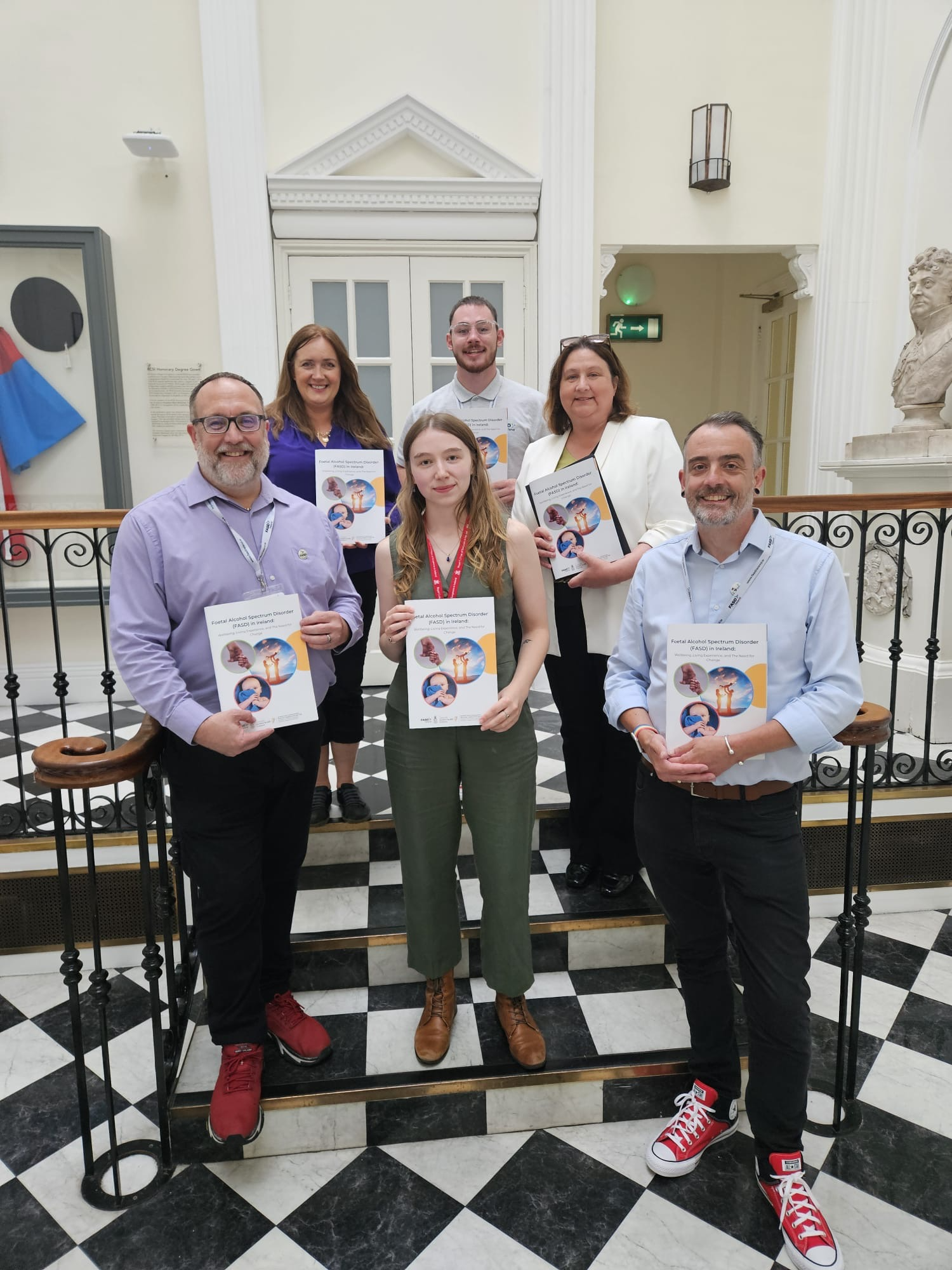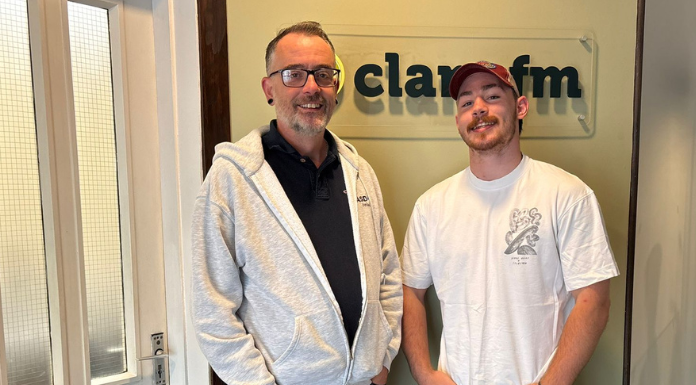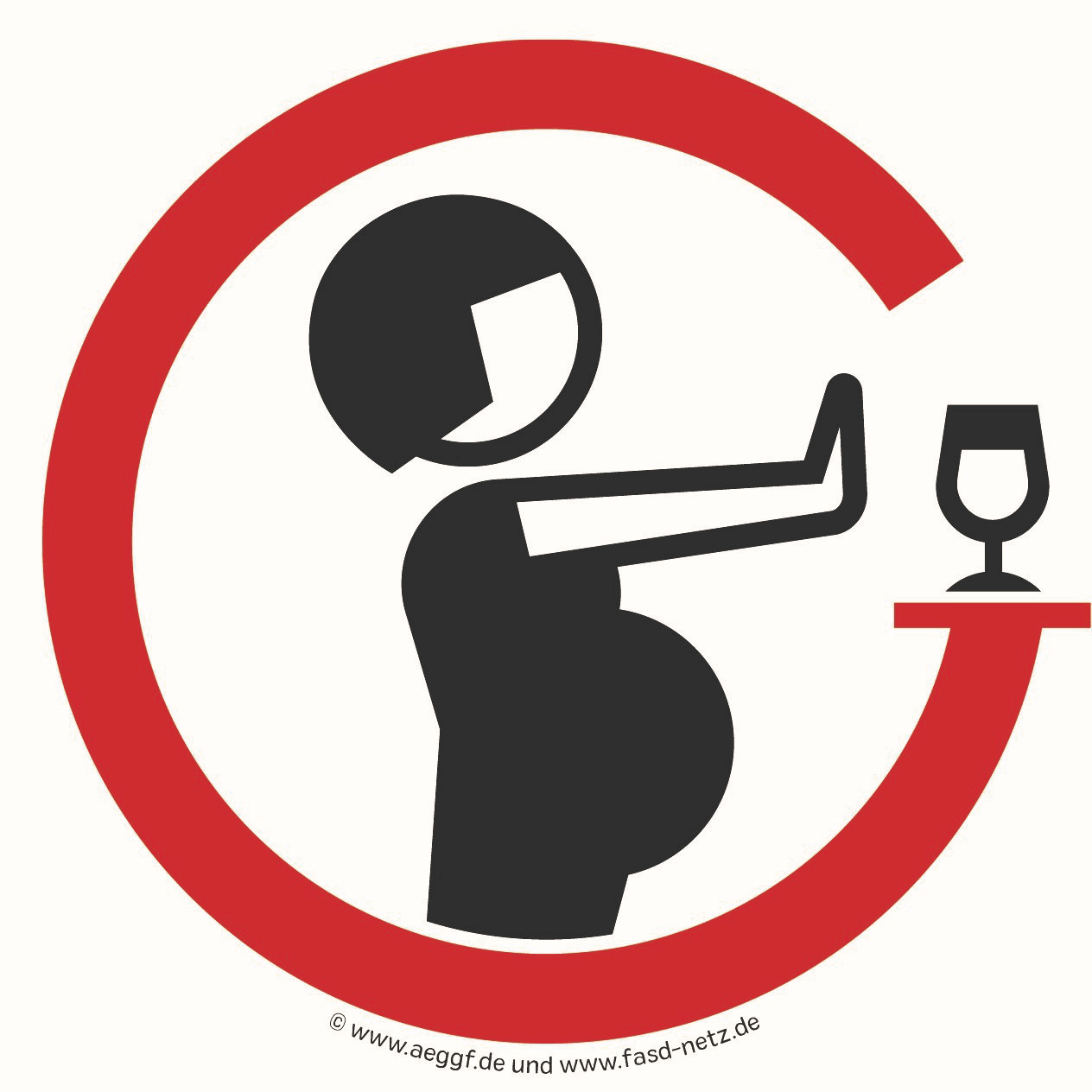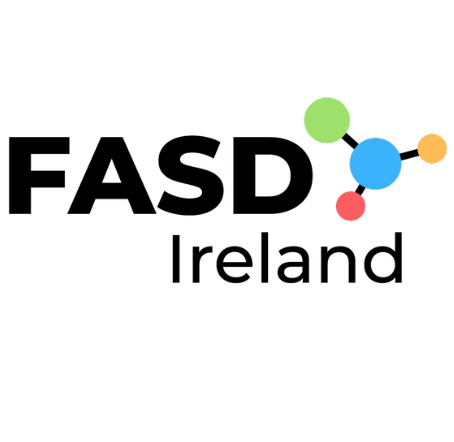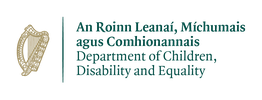"The wires got crossed in my brain as my
mom couldn't stop drinking"
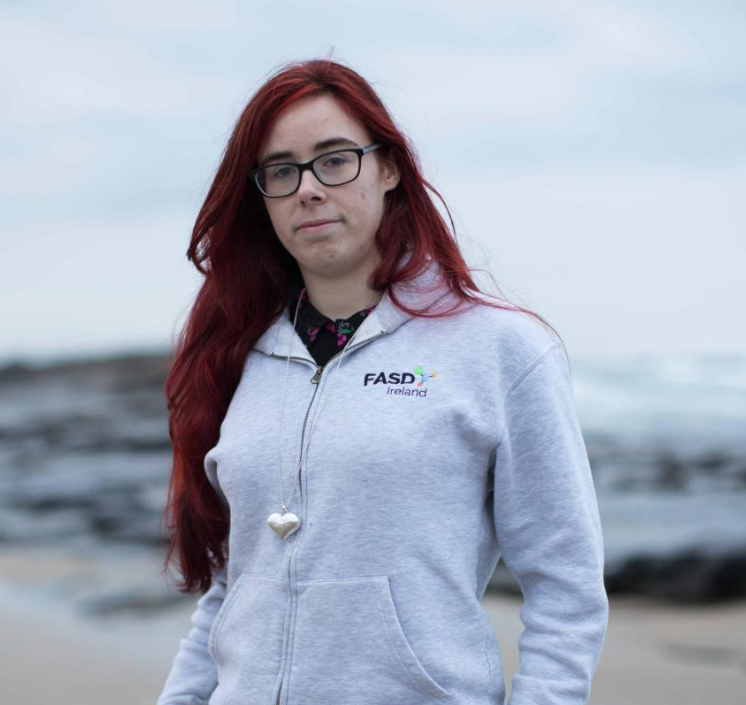
Maggie May McHugh was three days old when she was put into care. Some 14 years later her adoptive mother sat her down and told her that she had a foetal alcohol spectrum disorder. “My adopted mom just said, ‘Do you know what it’s like, Maggie, when you have a mosquito bite you just want to itch all the time and you’re told you cannot itch it?’” she recalled. When she nodded, her adoptive mother told her: “‘Drink was that itch, and your mom just couldn’t fight the itch.’ I was like, how I can hold any grudges?” She was fostered by her now adoptive mother as a three-month-old baby but kept up weekly visits to her birth mother for most of her childhood.
Her diagnosis came after a German friend of the family visited her Foster home in Clare when McHugh was around three years old and immediately recognised signs of the condition from children whom she had fostered. "I had facial features to a certain extent. They weren't as severe as some cases are," McHugh said, adding that they all but disappeared as she grew into adulthood. "I wasn't really talking. I wasn't really walking. I was very skinny. I wasn't thriving. I didn't like eating." With little known about the condition in the late 1990s, and Irish child psychiatrist, who flew to Canada to train in the condition, eventually diagnosed McHugh when she was five or six.
HSE Figures released last week, in answer to a parliamentary question, estimate about 6,000 babies a year are born in Ireland with foetal alcohol spectrum disorder (FASD) and 600 with foetal alcohol syndrome, the most severe form. A World Health Organisation (WHO) study in 2017 estimated Ireland had the third highest rate of FASD, after South Africa and Croatia, at 47.5 per 1,000 population. The global average was 7.7%.
Katy Tobin, an Assistant Professor at Trinity College Dublin and a leading expert on FASD, said it was "difficult to say how widespread it is with any degree of accuracy" due to limited research, but the WHO estimated almost one in 20 people in Ireland could have the condition. The effects are many. "Multiple areas of brain function are affected by prenatal alcohol exposure, including language, more skills, memory and attention," she said. "Academic performance is also affected, [as are] social skills and impulse control. FASD has over 400 conditions associated with it, including ADHD, anxiety disorders and autism." She added: "People with FASD are more likely to develop mental health problems and to become involved in criminal activity and are at higher risk of suicide and addiction."
For McHugh, she has learnt to manage symptoms which affect every facet of her daily life, from cleaning her room to eating meals. "I would be termed as high functioning. But some of the co-morbidities would be: I have an anxiety disorder, I am dyslexic, I have sensory processing issues, ADHD, I have short term memory loss," she said. "I have weak muscle tone in my hand, so I find writing quite a struggle." McHugh added that children with FASD could be misconstrued as naughty or inattentive in classrooms because they get overwhelmed by information. "I don't feel hunger, so I need to be reminded to eat. I have super high pain tolerance, so you know I'd be covered in bruises just from bumping into things, and not notice," she said. "The wires got crossed in my brain."
But one of the most debilitating aspects is the crashing exhaustion she calls 'burn out', which can hit her unexpectedly a few times a year. She does not 'function' when it strikes. "I cannot tell if things are hot or cold, or wet or dry. I cannot form sentences. I cannot think coherently. It is complete exhaustion. Sometimes I recover in weeks. Sometimes it can be months." Although she was told she had FASD at 14, it only really hit her when she was 17 and all her friends headed off to college. "My mom said, 'You're not there yet.'"
On the phone this week from Clare, she reveals she is just back from Washington, where she was giving a talk to raise awareness of the condition. Although a little later than her school friends, she did go onto the 'college experience' and now works part-time in FASD Ireland, along with giving webinars and talks about the condition all over the world and running an online support group. When she first typed the term 'FASD' into Google, she was 'terrified' by headlines about individuals with FASD being more likely to end up in jail. "Individuals firstly have very little impulse control, so very often we don't understand consequences, and also we are very easily manipulated," she said, but added: "There are also stories of people with FASD who have become doctors, who are writing books, who have won awards. I was like, actually, no, I can grow up and be something positive."
In understanding the condition, she points to the anger that individuals. can feel when they get a diagnosis. "There is grief and loss involved for parents whose child is never going to be like a neurotypical child, who may need extra support for the rest of their life. But then there's also grief and loss for the individuals themselves, knowing that they're always going to have challenges, there's always going to be struggles." With her own family, there was an unspoken acceptance on both sides helped by the 'great relationship' between her birth mother and her adoptive mother. "She knew I had a diagnosis of FASD. I knew that it was her drinking that had caused it. We kind of in ourselves reached an awareness of each other where she knew I didn't have any grievances or hate towards her,' McHugh said. "She was an alcoholic. And she grew up in a support network of alcoholics. At that time, there is no information about FASD and in fact doctors were recommending women drink to [ease] an iron deficiency. She wasn't given the help that she needed. She got turned away a lot. My mom never set out deliberately to cause me to have a disability. And for me to hold that against her is unfair. She passed away four years ago. I'm so lucky - I had two mothers and two families." McHugh believes that the stigma about drinking alcohol during pregnancy contributes to women not wanting to admit their habits, which otherwise would help with diagnosing the condition.
Tobin has conducted a new Trinity College study, due to be published in the coming weeks, surveying 70 care-givers of children and young people with FASD. Thirty-six per cent were adoptive parents while 40 per cent were foster parents. If those diagnosed 76 per cent, or 37 people were diagnosed in Ireland. Tobin said Ireland needed national guidelines on diagnosis and a defined care pathway with formal supports. Tristan Casson-Rennie, the director of FASD Ireland, has called for a specialist clinic to be set up to diagnose children with symptoms. "On average those diagnosed in Ireland saw three healthcare professionals on their journey to diagnosis,' Tobin said, adding at least one child saw up to eight professionals. She pointed to a study presented at a recent international conference that examined MRIs of foetuses prenatally exposed to alcohol, showing that brain changes were detectable even at low levels of alcohol exposure. She said: "The takeaway of public health message is that there is no safe amount of alcohol use in pregnancy. Even small amounts can lead to changes in brain structure."
McHugh offered a simple last message: "Nine months might seem like a very long time to not drink, but if it reduces the risk of your child having to have a lifelong disability, I think it's worth it."
The HSE's best available evidence estimates about 600 Irish babies are born each year with foetal alcohol syndrome, with up to ten times the number of babies born annually in Ireland who have other foetal alcohol spectrum disorders. "The majority of these children will have no visible signs of disability at birth and difficulties may not manifest until preschool or school age. As there is no register of persons with neurodevelopmental disorder in Ireland, no up to date data are available on cases of FASD in Ireland," the HSE said. "The HSE encourages pregnant women, and women planning a pregnancy, to have an alcohol free pregnancy. Even a small amount of alcohol at any stage of pregnancy can harm a baby's development and may have lifelong effects such as FASD."
The original article can be viewed here. Please note that this is behind a paywall.
